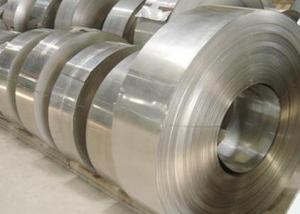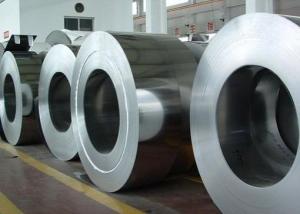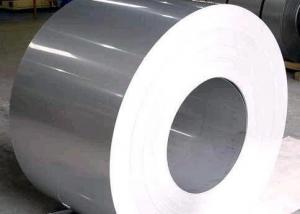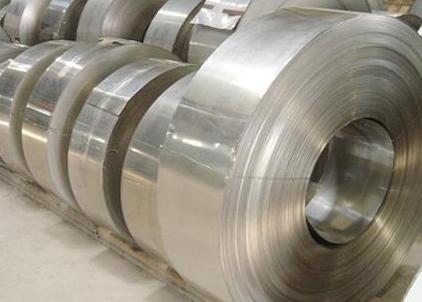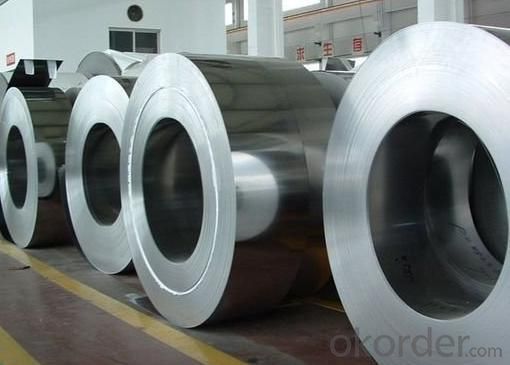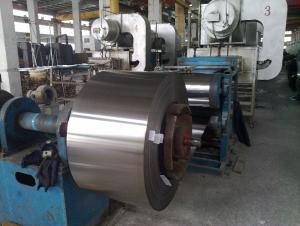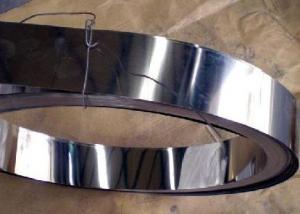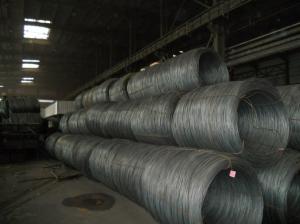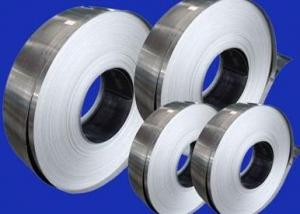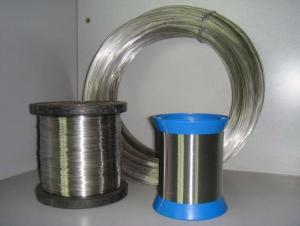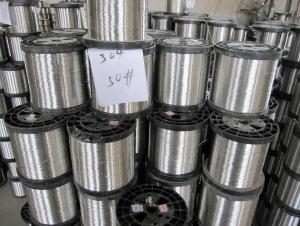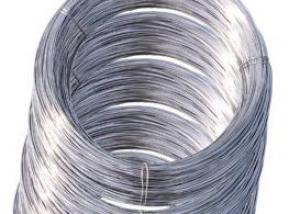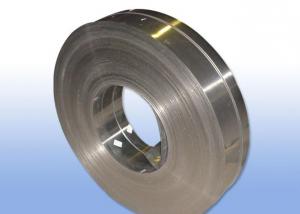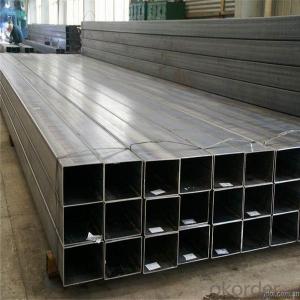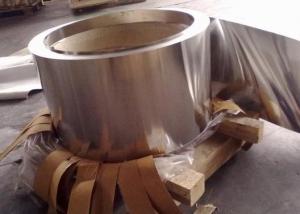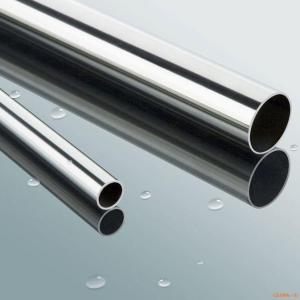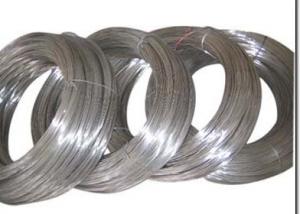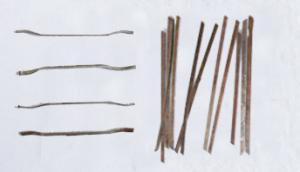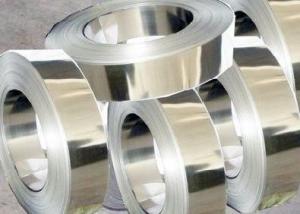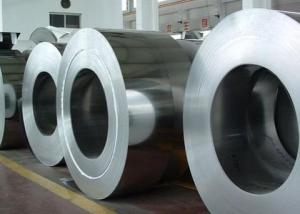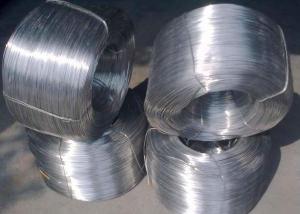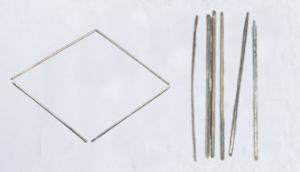SUS304 Stainless Steel Strips
- Loading Port:
- China Main Port
- Payment Terms:
- TT or LC
- Min Order Qty:
- 1 Ton m.t.
- Supply Capability:
- 2000 Tons Per Month m.t./month
OKorder Service Pledge
OKorder Financial Service
You Might Also Like
SUS304 Stainless Steel Strips
1. Chemical composition
|
C |
Si |
Mn |
P |
S |
Ni |
Cr |
|
max0.08 |
max1.00 |
max2.00 |
max0.045 |
max0.03 |
8.00-10.50 |
18.00-20.00 |
2. Mechanical properties
|
Yield Strength |
Tensile |
Elongation |
Hardness (HV) |
Hardness (HRB) |
|
≥ 205 |
≥ 520 |
≥ 40 |
≤ 200 |
≤ 90 |
3. Standard: AISI, ASTM, GB, EN, DIN, JIS
4. Surface: 2B, NO.1, BA, NO.4, Hairline, SB, Mirror finish, Anti-skid, Cherkered etc.
5. Size: Thickness: 0.3-3mm (cold rolled), 3-40mm (hot rolled)
Width: 1000mm or 1219mm or 1240mm for cold rolled, 1500mm for hot rolled.
Length: As customers' request.
6. MOQ: 1 Ton
7. Payment terms: T/T or L/C
8. Packing: Seaworthy package with wooden or Iron pallets with the paper and the steel strip, or as customers' request.
9. Delivery time: Usually about 7 days after we confirming the order, or according to your quantity.
If you have any demand, pls feel free to contact me.
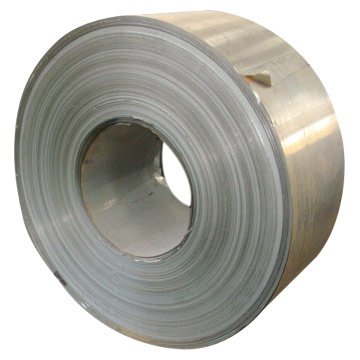
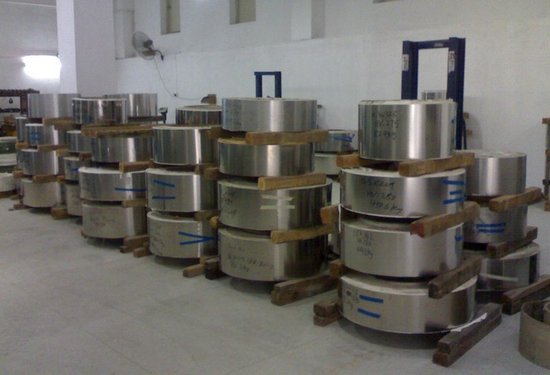
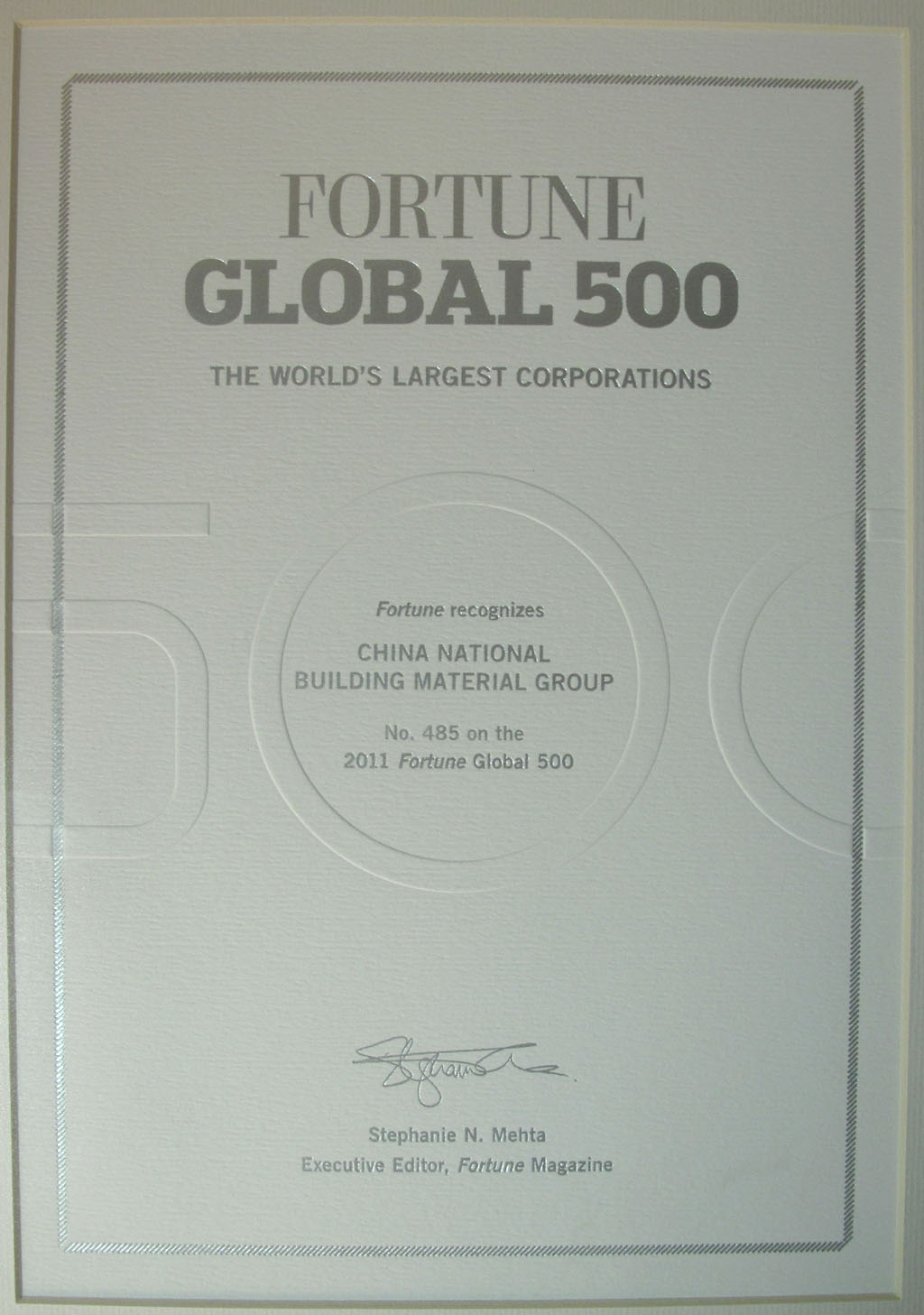
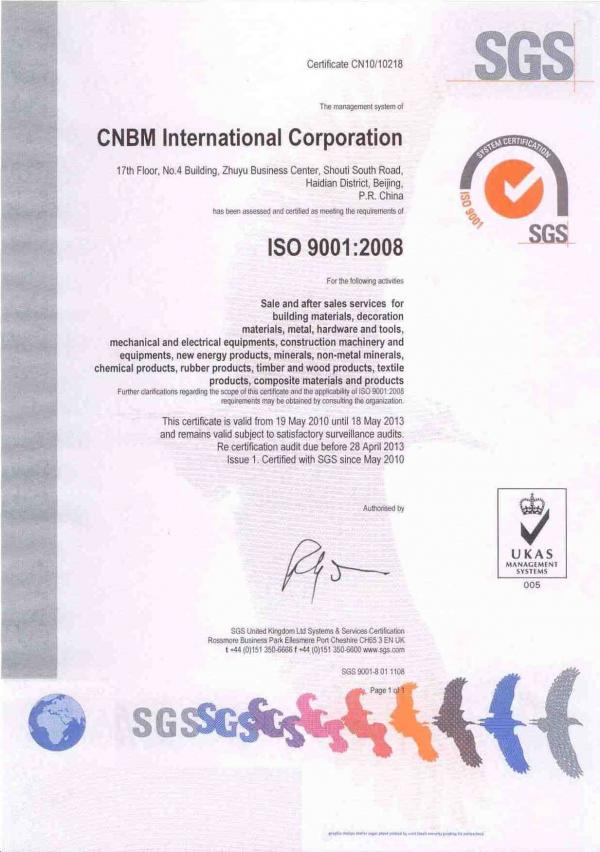
- Q: Can stainless steel wire be used for electrical conductivity?
- Yes, stainless steel wire can be used for electrical conductivity. While stainless steel is not as conductive as materials like copper or aluminum, it still has a relatively high electrical conductivity compared to other metals. This makes it suitable for various electrical applications, such as in electrical wiring, heating elements, and electrical connectors. Stainless steel wire also offers the advantage of being resistant to corrosion, making it a durable and reliable choice for electrical conductivity in environments where moisture or harsh conditions may be present. However, it is important to note that the electrical conductivity of stainless steel can vary depending on its composition and specific alloy.
- Q: What are the different surface coatings available for stainless steel wire?
- Stainless steel wire can be coated with various surface coatings, each with its own advantages and uses. Some commonly used coatings include: 1. Nickel plating: This coating enhances corrosion resistance and durability, making it suitable for marine and chemical-exposed environments. 2. Zinc plating: Zinc coating protects against corrosion and is often applied to stainless steel wire used outdoors or in industrial settings. 3. Epoxy coating: Stainless steel wire is coated with epoxy to create a barrier against corrosion, abrasion, and chemical exposure. Industries like food processing, pharmaceuticals, and medical devices commonly utilize this coating. 4. PTFE (Polytetrafluoroethylene) coating: Known as Teflon coating, PTFE provides a non-stick surface and reduces friction on stainless steel wire. It finds applications in conveyor belts and medical equipment. 5. Nylon coating: Nylon coatings offer excellent abrasion resistance and electrical insulation properties. They are ideal for abrasive environments and situations requiring electrical insulation. 6. Powder coating: This coating is applied as a dry powder and then cured through heat, forming a protective layer on stainless steel wire. It provides durability, chemical resistance, and can be customized in various colors for aesthetic purposes. The selection of a surface coating for stainless steel wire depends on specific application requirements, including desired corrosion resistance, durability, and functionality. It is crucial to consider factors such as the environment, chemical exposure, temperature, and more to choose the most suitable coating that ensures optimal performance and longevity for the stainless steel wire.
- Q: Can stainless steel wire be used for wire rope rigging?
- Yes, stainless steel wire can be used for wire rope rigging. Stainless steel wire is known for its high strength, durability, and resistance to corrosion, making it suitable for various applications including wire rope rigging. It provides a reliable and long-lasting solution for rigging needs in various industries such as construction, marine, and transportation.
- Q: Can stainless steel wire springs be used for automotive applications?
- Yes, stainless steel wire springs can be used for automotive applications. Stainless steel is a popular material choice for automotive springs due to its high strength, corrosion resistance, and durability. These springs can be found in various automotive components such as suspension systems, braking systems, clutch assemblies, and valve springs. Stainless steel wire springs offer excellent resistance to rust and corrosion, making them well-suited for use in automotive applications where exposure to moisture, chemicals, and harsh weather conditions is common. Additionally, stainless steel springs can withstand high temperatures and maintain their performance over time, ensuring reliable and long-lasting operation in automotive systems.
- Q: Can stainless steel wire be used for aerospace applications?
- Indeed, stainless steel wire finds great utility in aerospace applications. Renowned for its ability to withstand corrosion and possess remarkable strength, stainless steel emerges as an optimal material for diverse aerospace components. Notably, it is extensively employed in the development of aircraft structures, engine parts, and fasteners. Furthermore, stainless steel wire serves in aerospace settings as wire ropes, cables, and electrical connectors. Its endurance and capacity to endure extreme temperatures render it highly suitable for the rigorous conditions encountered in aerospace environments. Moreover, stainless steel wire can be effortlessly manipulated and boasts exceptional mechanical characteristics, rendering it the preferred choice for aerospace engineering.
- Q: Can stainless steel wire be used for wire rope pulleys?
- Yes, stainless steel wire can be used for wire rope pulleys. Stainless steel is a strong and durable material that offers excellent resistance to corrosion, making it suitable for outdoor or marine applications. It has a high tensile strength and can withstand heavy loads and constant use. Stainless steel wire rope pulleys are often used in industries such as construction, mining, and transportation where reliability and longevity are required.
- Q: What are the different types of stainless steel wire connectors?
- On the market, one can find various types of stainless steel wire connectors. Some commonly utilized options include: 1. Wire nuts: These connectors, shaped like small cones, are ideal for joining two or more wires together. They find widespread use in both residential and commercial electrical applications. 2. Crimp connectors: By employing a crimping tool to compress and secure wires, these connectors establish a reliable connection. They are commonly employed in automotive, marine, and industrial settings. 3. Twist-on connectors: Also referred to as wire caps or wire nuts, these connectors twist onto wire ends to create a secure connection. They are frequently used in residential electrical applications. 4. Terminal blocks: These connectors facilitate the connection of multiple wires at a single location. They consist of a plastic or metal block with screw terminals, ensuring convenient and secure wire connection. 5. Butt connectors: Designed for joining two wires end-to-end, these connectors feature a metal tube with an insulating sleeve that is crimped onto the wires. The result is a secure and insulated connection. 6. Splice connectors: These connectors are utilized to join two wires in a straight line, without overlap. They typically consist of a metal or plastic connector that is crimped onto the wires, creating a secure and inconspicuous connection. 7. Push-in connectors: These connectors enable quick and easy wire connection without the need for tools. They typically consist of a plastic housing with metal contacts that grip onto the wire when inserted. These examples represent just a few of the stainless steel wire connectors available. The choice of connector depends on the specific requirements of the project and its application.
- Q: Is stainless steel wire resistant to kinking?
- Yes, stainless steel wire is generally resistant to kinking. Stainless steel possesses excellent strength and flexibility, making it less vulnerable to kinking compared to other types of wire. Its unique composition, which includes chromium and nickel, provides increased resistance to corrosion, rust, and bending. However, it is important to note that while stainless steel wire is less likely to kink, it is not completely immune to it. Under extreme pressure or improper handling, stainless steel wire can still kink or deform. Therefore, proper care and handling are important to maintain the integrity and longevity of stainless steel wire.
- Q: What is the cost of stainless steel wire compared to other materials?
- The cost of stainless steel wire is generally higher compared to other materials due to its durability, corrosion resistance, and versatility. However, the actual cost can vary depending on factors such as the specific grade of stainless steel, the thickness and diameter of the wire, and market conditions.
- Q: Is stainless steel wire resistant to bending?
- Indeed, stainless steel wire exhibits resistance against bending. Renowned for its exceptional durability and strength, stainless steel is a material that displays remarkable resilience when subjected to stress-induced deformation. Boasting a commendable tensile strength, stainless steel wire is capable of enduring substantial bending forces without succumbing to permanent distortion or fractures. Consequently, stainless steel wire proves to be an optimal choice for endeavors necessitating bending or shaping, including construction, manufacturing, and diverse industrial procedures. Moreover, stainless steel wire retains its resistance against bending even in the face of extreme temperatures, rendering it a versatile and dependable substance suitable for an extensive array of applications.
1. Manufacturer Overview
| Location | Zhejiang, China |
| Year Established | 2005 |
| Annual Output Value | Above US$1.6 million |
| Main Markets | Europe, North America. |
| Company Certifications |
2. Manufacturer Certificates
| a) Certification Name | |
| Range | |
| Reference | |
| Validity Period |
3. Manufacturer Capability
| a) Trade Capacity | |
| Nearest Port | Shanghai |
| Export Percentage | 40% |
| No.of Employees in Trade Department | Above 30 people |
| Language Spoken: | English, Chinese |
| b) Factory Information | |
| Factory Size: | Above 5000 square meter |
| No. of Production Lines | Above 6 |
| Contract Manufacturing | OEM Service Offered |
| Product Price Range | Average |
Send your message to us
SUS304 Stainless Steel Strips
- Loading Port:
- China Main Port
- Payment Terms:
- TT or LC
- Min Order Qty:
- 1 Ton m.t.
- Supply Capability:
- 2000 Tons Per Month m.t./month
OKorder Service Pledge
OKorder Financial Service
Similar products
Hot products
Hot Searches
Related keywords
